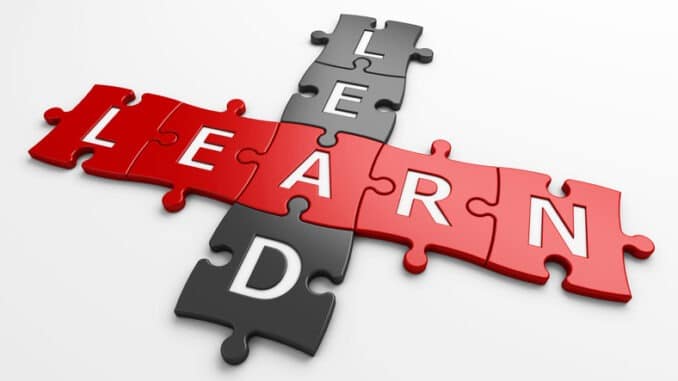
Successful leaders are learners who upgrade their capacity to navigate a world of increasing complexity and uncertainty
CREDIT: This is an edited version of an article that originally appeared on Management Today
“You can teach an old dog new tricks,” says Mike Vessey, managing partner of MDV Consulting. “However hard it is, you can reinvent yourself.”
The knowledge that underpins that view, and manifests itself in MDV’s development work with leaders of all ages, is that humans’ capacity to change how they think, relate and manage themselves, can continue to be grown throughout life. “It’s welcome news that neuroscience indicates we can grow our sense-making capacities well into our 70s,” says Mike, “and both theory and experience tell us that there are much better ways than leaving it to chance.”
The development that Mike promotes enables people to remain effective in conditions of uncertainty – and it does not treat individuals as vessels of fixed capacity into which you pour knowledge until full. “I use the analogy of a smartphone,” he says. “Rather than adding more and more apps, we upgrade the operating system so the whole thing works more effectively. We need that for today’s world, in which everything is potentially more interconnected, more complex and, perhaps, more fragile.”
Adult development and neuroscience ideas inform MDV’s work helping leaders and teams grow the capacities needed to thrive in complexity. Developmental practices applied to daily challenges, under the right conditions, create new neural , so different ways of thinking, doing, and being become natural, and a more sophisticated approach results. Pointing at specific practices makes the process of development a conscious and more certain one.
“Habit-breaking and habit-forming are hard – we get stuck, and so need help. We would do that if going to a gym, and it’s similar for our development,” explains Mike (pictured right). Based on the ‘best of the best’ of adult development research, a group of practitioners at MDV have identified four capacities which differentiate how successfully a person responds to complexity and uncertainty.
Complexity processing
Today’s leaders live with an onslaught of data. Making sense of this complexity, and staying adaptable, are crucial. For example, when making a strategic decision, how many factors can one relate together, rather than processing one at a time? “Helping leaders to recognise context is important,” says Mike. “There’s no ‘one-size-fits-all’ approach. A leader has to assess what any given situation requires from them and adapt responses once they’ve started making sense of the problem.”
The Cynefin sense-making framework by Dave Snowden is one approach MDV uses to help leaders learn. It sets out four decision-making contexts or domains – clear, complicated, complex and chaotic – each of which require different approaches.
Fluidity of thinking
As the novelist F. Scott Fitzgerald said in the 1930s, “The test of a first-rate intelligence is the ability to hold two opposing ideas in mind at the same time and still retain the ability to function.”
Despite what populist politicians might claim, there are rarely simple, either/or solutions to problems; leaders are currently balancing short-term needs with long-term goals, or weighing up empowerment and control in the case of a disparately located workforce. “These tensions are tricky to navigate,” says Mike. “Being able to reframe your thinking, and construct different approaches to problems, opens up new opportunities.”
Self-observation
Change and development requires a degree of introspection, Mike points out. “We have to see, and step away from, habits that no longer serve. Leadership is learning. If you really want to lead – rather than just manage the status quo – you need to embrace the journey. Experimentation, and a willingness to fail, are key parts of that. Any transition is unsettling, but the rewards are immense.”
Perspective-shifting
It takes nuance to navigate the emerging possibilities in business, and high-functioning leaders actively seek out a variety of different perspectives, including seeing issues from other people’s points of view. “A favourite we use to help with this is the empty-chair exercise,” explains Mke. “Can you move to a different seat to view, and understand, from someone else’s perspective? Can you now stand up and get a third-person perspective, looking at the space between the two characters and assess their relationship? There’s even a fourth perspective where you are able to bear witness to the filters through which you are making your observations.”
Ultimately, MDV aims to leave a lasting legacy for clients that delivers holistic benefits. The most satisfying feedback for Mike’s team is that, “I’m not working any harder or smarter, but I’m in better flow with the work that I’m trying to do. We’re having different types of conversations to resolve issues, not simply repeating past patterns.”

Be the first to comment